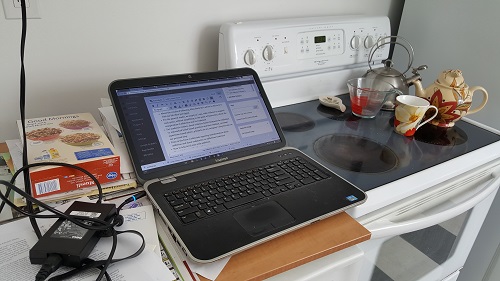I am trying to entice Maia Szalavitz, author of New York Times bestseller Unbroken Brain: A Revolutionary New Way of Understanding Addiction, into writing a sequel. I tweeted her this title: Unbroken Lives: A Revolutionary New Way of Understanding Addictions Recovery. I follow Maia’s Twitter stream avidly to learn of her new work and she’s writing about that subject and more. (We curate much of it here). Whether she writes that book or another, the title encompasses a main theme of the posts I’m writing for my personal blog, my company’s blog, and for The Fix.
I love what I’m writing.
I try to post my personal story on my personal blog and to publish posts that might be more widely useful on my company’s blog. But when my personal and professional experience overlap, I can be uncertain about which goes where. For example, this post about the evidence base for SMART Recovery definitely goes on my company’s blog. I made a personal plea for people to become SMART Recovery hosts on my personal blog, but I think a version of it could go on my company’s blog as well. The do-it-yourself addictions recovery series I’m writing is a personal, political act of protest – my citizen’s declaration of a state of emergency – and definitely goes on my personal blog.
Specifically, I’m writing:
- My own personal narrative about recovery from addiction to alcohol
- About the results of following Maia Szalavitz’s advice to fall in love with my life (first post here)
- For the general reader, as simply as I can, with evidence to support each point, without simplifying to the point of inaccuracy, about the complexities of addiction and its treatment
- For academic readers, about evidence-based treatment for addiction vs. entrenched belief-based practices and their sidekick, personal experience-based advice, primarily on my company’s blog but also on my personal blog
- Posts in the form of editorials opposing misinformation about addiction and about malpractice in addictions treatment
- How to help loved ones with addiction
- How to help oneself with addiction
- How to help one’s community with addiction
- Requests to Laurel Sindewald. When I can’t find a synthesis of what the science says about what I’m writing, I outline my needs and ask Laurel if she will write a report for our company’s blog. If the topic is a fit, Laurel scrutinizes the research literature, then uses her fine mind and beautiful writing skills to author and publish reports. I then write in and around the reports, excerpting and linking. For instance, in my post about understanding one’s own case of addiction, I linked my word “trauma” to her report on addiction and trauma and my word “sleep” to her report on addiction and sleep.
- DBT-informed exercises for people who are members of substance use disorder (SUD) therapy groups or addictions recovery support groups. Research on dialectical behavior therapy (DBT) is revealing its promise in helping people with multiple mental health issues as well as SUD. As a former teacher, I’m an experienced distiller of large amounts of information into one-page handouts, so this is a real find of a fit for me!
- As I gain new insights, revisions of my dating site profile. Who am I? What do I like? What do I offer? What do I seek? What have I learned from past relationships to help everyone have a better time? Pretty radical to answer these questions.
- A book or books? I’m not sure. Could groups of these posts be brought together into books? My alcoholism recovery story? A self-help or other-help book? Falling in love with life while in recovery? I dunno.
I love writing a blog. I think it up, write it up, take a pic to go with, publish the post, done! Wake up in the morning, make tea, sit down in my pink office or stand up at my kitchen dishwasher desk, do it again!
Bliss!


